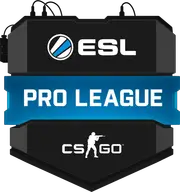Connection Corner
Your go-to guide for relationships, dating tips, and hookup advice.
Beyond the Leaderboard: Discovering the Heart of CSGO Pro Team Rankings
Uncover the secrets behind CS:GO pro team rankings and what truly sets the best apart. Dive into the heart of competitive gaming now!
Understanding the Metrics: How CSGO Pro Team Rankings are Calculated
The ranking of professional CSGO teams is based on various metrics that measure their performance over time. These metrics typically include match wins, losses, tournament placements, and head-to-head statistics. Rankings can fluctuate depending on recent performance, meaning that consistent play is essential for maintaining a high position in the rankings. Additionally, the strength of the opponents faced, known as opponent difficulty, also influences a team's ranking. For example, victories against higher-ranked teams can significantly boost a team's standing, whereas losses against lower-ranked teams can have a detrimental effect.
Another crucial aspect of understanding CSGO rankings is the Elo rating system that many leagues implement. This system assigns a rating to teams based on their performance, adjusting after each match. The formula takes into account the existing ratings of both teams and the result of the match, ensuring that a team's rank reflects their true competitive ability. Moreover, tournaments often utilize a point system where teams accumulate points based on their performance, which can be pivotal for qualifying for major events and championships.

Counter-Strike is a highly popular tactical first-person shooter game that has gained a massive following over the years. Many players often seek to enhance their performance by utilizing professional players' configurations and controls, such as sh1ro settings, which can provide a competitive edge in gameplay.
The Journey of a Team: Behind the Scenes of CSGO Ranking Dynamics
The journey of a team in the competitive world of CSGO is often filled with challenges and triumphs, reflecting the intricate dynamics of ranking systems. A team's success hinges on a variety of factors, including individual player skill, teamwork, and strategic depth. The ranking system serves as a representation of a team's performance, influenced by their match history, win rates, and the skill levels of their opponents. Understanding these nuances is crucial for teams aspiring to ascend the ranks and compete at higher levels.
Behind the scenes, the road to improving in CSGO is paved with rigorous practice schedules and extensive analyses of past performances. Teams often engage in scrimmages to identify weaknesses and hone their strategies. They also study replays to learn from both victories and defeats. Moreover, the psychological aspect of competition cannot be overlooked; team cohesion and morale significantly impact performance. Thus, the journey of a team is not just about the game mechanics but also about building a unified front to navigate the complexities of ranking dynamics.
What Makes a CSGO Team Successful? Key Factors Beyond the Rankings
Success in a CSGO team goes beyond mere rankings; it is a blend of various crucial elements that contribute to overall performance. One of the key factors is team chemistry. A cohesive team, where players understand each other's playstyles and decision-making, often outperforms individually skilled players who lack synergy. Moreover, effective communication is essential. Teams that engage in constant strategizing and in-game dialogue are quicker to adapt and respond to opponents' tactics, making all the difference in high-stakes matches.
Another significant factor is coaching and analysis. A good coach provides not only tactical insights but also mental support, helping players maintain focus and composure during intense moments. Additionally, investing in continuous improvement through practice drills and thorough game analysis allows teams to identify weaknesses and refine their strategies. In conclusion, while rankings provide an overview of a team's standing, the underlying elements such as cohesion, communication, and coaching truly determine a successful CSGO team.